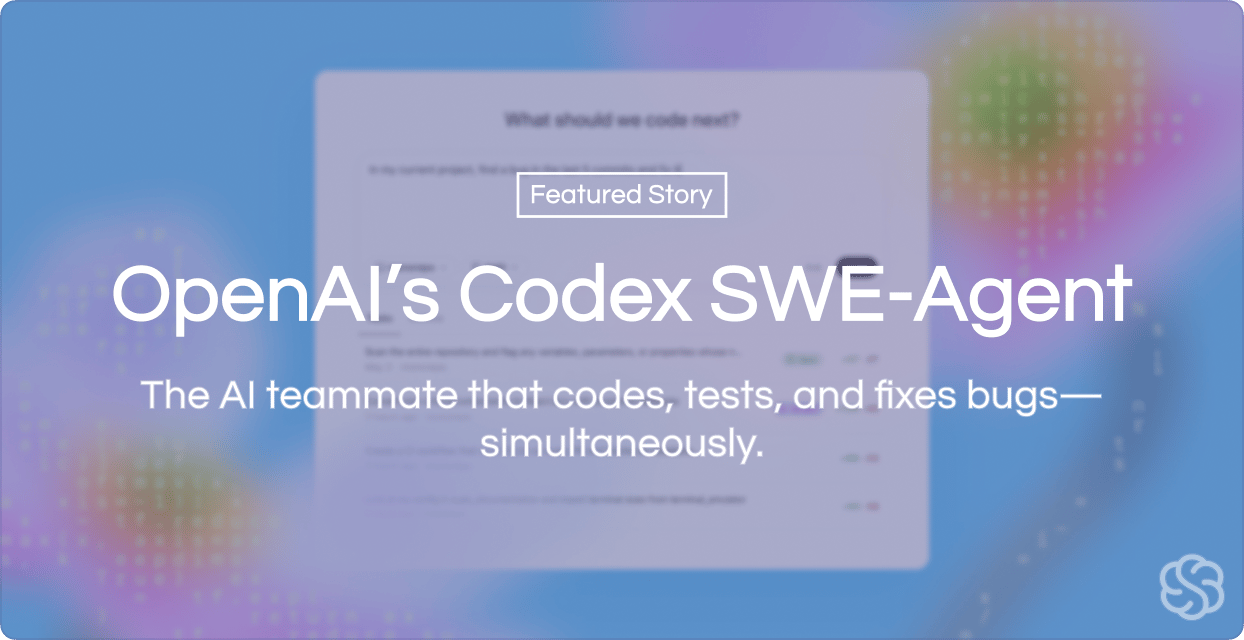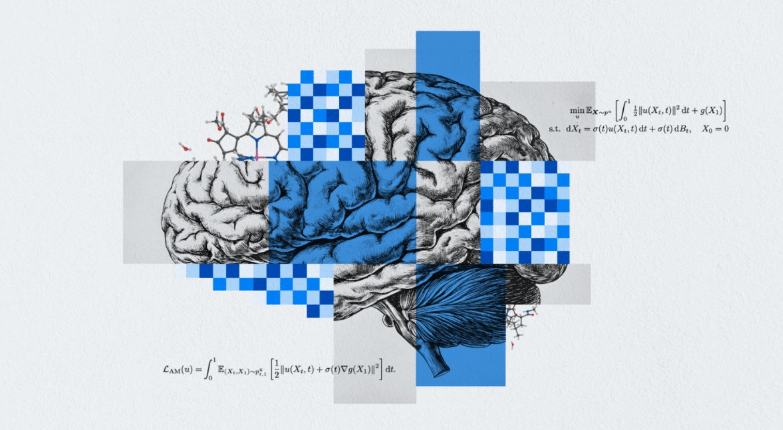Dear Readers,
Have a good start to the week, and great things await us this week! Google i/o starts in the middle of the week - and the first leaks point to the release of Gemini 2.5 Ultra! At the same time, OpenAI's o3 Pro is in the starting blocks.
But before that, OpenAI released its revised SWE agent “Codex” last week. We take a look at what it's all about.
Plus the most important global news in AI and politics.
Have fun!
In Today’s Issue:
OpenAI’s Codex SWE-Agent revolutionizes software development with autonomous multi-tasking
Meta FAIR releases groundbreaking AI models for science and language
UAE launches TAMM, an AI-powered superapp transforming government services
Qwen2.5-Omni-7B quantized models go live on Hugging Face and ModelScope
And more AI goodness…
All the best,

OpenAI’s Codex SWE-Agent
The TLDR
OpenAI’s Codex SWE-Agent, based on the codex-1 variant of the o3 model, is designed to autonomously handle software development tasks like adding features, fixing bugs, and writing unit tests—all in parallel. It operates in isolated cloud environments, delivering tested, production-ready code that integrates directly into developer workflows.
Imagine giving an AI the task: “Add a dark mode to the dashboard, fix the login bug and write unit tests for the new module” - and it does all this at the same time. Welcome to Codex, the latest AI agent from OpenAI that is revolutionizing software development. Codex is based on the codex-1 model, a variant of the powerful o3 model optimized specifically for software development.
What makes Codex unique is that it can perform multiple tasks in parallel in isolated cloud environments. Whether feature development, bug fixing, test runs or code reviews - Codex works autonomously and efficiently. It is based on human programming standards, carries out tests and delivers comprehensible results that can be seamlessly integrated into existing workflows.
This represents a quantum leap for the AI community: Codex transforms the role of developers by taking over routine tasks and creating space for creative problem solving. It is not just a tool, but a virtual teammate that accelerates the development process and redefines collaboration.
Why it matters: Codex enables parallel working at developer level, automates complex tasks and makes software development more efficient and accessible. It paves the way for a new era of human-AI collaboration in programming.
Ad
🚨 Want to become famous(er), grab more customers, and 100X your reach?
Stop burning budget on ads and hoping for clicks. Podcast listeners lean in, hang on every word, and buy from guests who deliver real value. But appearing on dozens of incredible podcasts overnight as a guest has been impossible to all but the most famous.
PodPitch.com is the NEW software that books you as a guest (over and over!) on the exact kind of podcasts you want to appear on – automatically.
⚡ Drop your LinkedIn URL into PodPitch.
🤖 Scans 4 Million Podcasts: PodPitch.com's engine crawls every active show to surface your perfect podcast matches in seconds.
🔄 Listens to them For You: PodPitch literally listens to podcasts for you to think about how to best get the host's attention for your targets.
📈 Writes Emails, Sends, And Follows Up Until Booked: PodPitch.com writes hyper-personalized pitches, sends them from your email address, and will keep following up until you're booked.
👉 Want to go on 7+ podcasts every month? Book a demo now and we'll show you what podcasts YOU can guest on ASAP:
In The News
Meta FAIR Unveils Breakthrough AI Tools for Molecules, Language, and Neuroscience
Meta’s FAIR team has announced a suite of powerful new AI tools and datasets aimed at revolutionizing molecular science, language processing, and brain research. Key releases include OMol25 for atomic simulations and the Universal Model for Atoms to model interatomic interactions. The new Adjoint Sampling algorithm enables more efficient generative model training. Additionally, a major neuroscience study with Rothschild Foundation Hospital uncovers surprising similarities in how humans and AI models develop language.
UAE Launches AI-Powered Government Superapp TAMM
The UAE has unveiled TAMM, an AI-driven government platform offering over 950 services—eliminating paperwork, queues, and inefficiencies through real-time automation on a sovereign cloud. Microsoft’s Brad Smith praised the innovation, saying, “You need to bring this to America.”
Qwen2.5-Omni-7B Quantized Models Now Available
Qwen has released the quantized versions of its Qwen2.5-Omni-7B models, now accessible on both Hugging Face and ModelScope. These models offer optimized performance for deployment in resource-constrained environments while maintaining strong multilingual and reasoning capabilities.
Graph of the Day
“Algorithmic advances that could drive an intelligence explosion may be bottlenecked by compute”

Milken conference: How hedge funds Citadel, WorldQuant, and Freestone Grove are using AI
At the Milken Panel, Citadel, WorldQuant and Freestone Grove showed how generative AI is revolutionizing their research: Chatbots reduce search and analysis effort, multimodal data feeds models, workflows are automated end-to-end. This reduces costs, accelerates capital allocation and shifts alpha to data-rich funds - a structural shift that is likely to reorganize valuation dynamics and competition.
Cross Market Operational Resilience Group publishes AI Baseline Guidance Review
The Cross Market Operational Resilience Group published its first “AI Baseline Guidance Review” on May 15. It sets binding governance, risk and third-party standards for AI in financial institutions. Early implementers secure regulatory clarity and cheaper capital; latecomers risk higher capital costs. This makes compliance the new barrier to entry and influences monetary policy transmission via the bank balance sheet.
$10B Surge: AI Tokens Booming as DeFi Projects Redefine Tech Investment Landscape
AI tokens received $10bn in fresh capital this week alone; top assets jumped >100%. Projects like PayPal-backed Newton automate DeFi portfolios, AID Alpha links yields to GPU revenues. The tokenization of AI services is creating a new investment universe that could pull funds out of traditional tech stocks - a potential inflection point for asset allocation and risk premia.
Question of the Day
Quote of the Day













